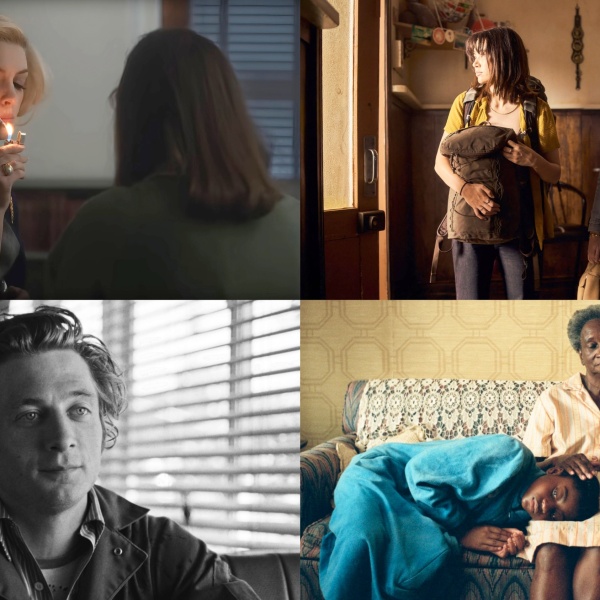The 19th century Ireland of director Rodrigo García‘s “Albert Nobbs” is rigid with insurmountable societal distinctions: every soul has his or her station firmly proscribed at birth, and escape is virtually unheard of. Against this stifling backdrop, García crafts an engaging, entertaining and enlightening piece of work that is richly dramatic and underscored by moments of wry, quiet humor. It doesn’t hurt that, making good on all the pre-festival buzz, the film features Glenn Close in a performance that seems destined to earn her a sixth Oscar nomination and perhaps her first win (it would be well deserved).
She plays a woman who is passing as a man, the Albert Nobbs of the title. This she does in order to survive but also, perhaps, through careful planning, to find an unconventional way to fulfill closely held dreams and better her place in Irish society. As a butler in a Dublin hotel, The Morrison, Albert is precise, quiet, and as would be expected of one in that position, almost invisible. She’s frugal too; saving up money over the years with the goal of buying and running her own tobacco shop.
Two events occur almost simultaneously that propel the story forward. The hotel’s owner hires a painter, and when he needs to spend a night to finish the job, he’s assigned to room with Albert who obviously fears discovery. And at nearly the same time a young handyman who has been fired from his position at another Dublin hotel scams his way into a job at The Morrison. He, too, may pose a threat to Albert’s secret identity and dreams for the future.
This project has long been a labour of love for the actress, which is evident from her position as producer and co-writer of the screenplay (with John Banville) based on the play by Gordon Steel (which Close herself starred in onstage, back in the ’80s). She has been actively pursuing the notion of ‘Nobbs’ as a film for the last 15 years, and, as a result no doubt of her long relationship with the material, turns in an exquisitely detailed performance that truly is the core of the film. She creates a male character that is so honestly convincing you find yourself forgetting that you’re looking at Glenn Close in drag. But it’s not just with facial and physical details, posture and gait that Close creates Albert, she also manages to convey the character’s emotions, all the harder because they’re hidden by so many layers of repression. It’s a remarkable immersion of actor into character.
But Close’s performance isn’t the only selling point of the piece; it’s much more than a one-woman show. We also glimpse the lives of the rest of the hotel staff, Albert’s co-workers who dream of escape too, as well as the “other half”: the hotel owner, the well-to-do-guests, some lower-level royalty that occasionally while away a day or two in the establishment. These characters are crucial to establishing the social strata and feel of the period, and the supporting cast rise to the occasion, headlined by Brendan Gleeson as an in-house hotel doctor, Mia Wasikowska as a hotel maid and a revelatory Janet McTeer who plays a visitor to the hotel, and who matches Close beat for beat in their scenes together.
The film was shot in present-day Dublin but thanks to uniformly excellent cinematography, costuming and set design, the Dublin of the 1800s has been rendered authentically and beautifully. The makeup, which plays a huge role in transforming Close from a woman into a convincing man, is spectacular too. So with solid, sometimes brilliant supporting performances, an able script that cleverly avoids hackneyed plot turns and deft direction from Rodrigo García, perhaps ‘Nobbs’ deserves to feature in categories other than Best Actress come awards time too?
Mining a rich vein of the quest for personal identity and slowly but surehandedly earning its emotional resonance, “Albert Nobbs” has much more to offer than just Close’s performance. But what a performance it is: one that doesn’t merely burnish, but absolutely cements her reputation as one of the finest actresses alive. [A-] —Michael Patterson



